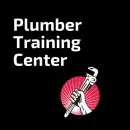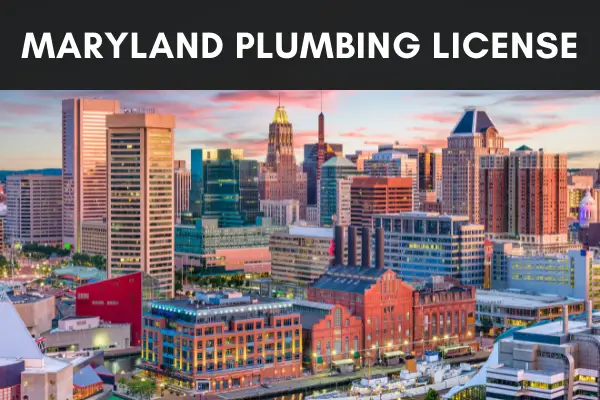Keep reading to learn more about how you can become a licensed plumber in the state of Maryland.
Why Become a Licensed Plumber?
If you are a licensed plumber, you have been certified as a professional in your field by your state. Licensed plumbers enjoy many benefits, including enhanced reputation, access to insurance, and the ability to provide certification that their work is compliant with the state requirements.
Licensed plumbers in Maryland may see increased employability as their clients know they have received adequate education.
How to Become a Licensed Plumber in Maryland?
There are a few steps required to get your plumbing license in the state of Maryland.
Step 1: Earn Your High School Diploma
Most plumbing career paths will require you to have a high school diploma or GED. If you have not finished high school, it is necessary to complete your degree. This will allow you access to apprenticeships and vocational courses that you may need to take.
Step 2: Join an Apprenticeship Program
To become a plumber in Maryland, you have to first complete four years in an apprenticeship program. Most programs require an application to be accepted. To become an apprentice, you should apply through the Plumbing Board’s website.
An apprenticeship program will allow you to learn the basics of how the plumbing industry operates and gain hands-on technical knowledge under expert supervision.
As an apprentice plumber, you will be required to work 40-hour weeks. You will receive a salary for your work. Many Maryland apprenticeship programs also require that you take courses in conjunction with your apprenticeship duties.
Step 3: Become a Journeyman Plumber
Once you have completed your apprenticeship, you can then become a journeyman plumber. This is an intermediary qualification. To be certified as a Journeyman plumber, you will need to meet the following qualifications:
- Four years of an apprenticeship
- 7,500 minimum hours of training under a licensed master plumber
- 32 hours of backflow prevention device training
- A passing score on a comprehensive written exam
Being a Journeyman plumber comes with an increased salary and more professional responsibilities. It is a necessary step to becoming a master plumber.
Step 4: Become a Master Plumber
Once you have passed at least two years as a journeyman plumber and accrued at least 3,750 additional training hours under a master plumber, you can then take the exam to become a master plumber in your own right.
Step 5: Look for Employment
After becoming certified as a master plumber, you can look for employment opportunities with plumbing companies.
If you are interested in future career advancement, you can also become a plumbing inspector. This requires continuing education. Another popular option is to obtain gas fitter certification, which will require specialized training during your time as an apprentice.
What is the Cost to Get a Maryland Plumbing License
To obtain a plumber’s license, you will need to spend anywhere from $15 to $65. Apprentice examinations will typically require a fee of $15 for both plumbing and gas fitting. Journeyman and Master plumbers may have to pay around $65 for their examinations.
Additionally, if you attend a vocational school to get more training before becoming a plumber, this will have a varying cost associated with it as well.
Maryland Plumbing Examinations
To pass the exam to become a Master or Journeyman plumber, you will need to get a 75 percent score or higher on each examination. The exams at these stages will have a $65 fee.
The exams each have 100 questions and you will be given a time limit of four hours to complete the exam.
Plumber Training Courses in Maryland
There are many options to take training courses. Some apprenticeship programs offer plumber training courses alongside their apprentice work. Additionally, many vocational and trade schools offer courses that will give you training in plumbing.
It is worth noting that most plumbing courses will be in person, as online classes will not allow you the same hands-on opportunities. A college degree is not required to be a plumber, but an educational foundation in plumbing while completing your apprenticeship can help your career.
How Much Can a Plumber Make in Maryland?
The average plumbing salary in Maryland is $26.64 per hour. Over a year, this adds up to around $60,000. Journeyman plumbers will make less than the average, and master plumbers will make more. The salary range is typically from $52,000 to $69,000.
Plumbers are often eligible for overtime, too, depending on who they work for. As you apply for jobs, ask about company policies on overtime to see how much money you could make in addition to your salary.
Can Work in Other Areas with a Maryland Plumbing License?
As a licensed plumber in Maryland, there are some opportunities for reciprocity. Maryland plumbers can work in Delaware and the Washington D.C. metropolitan area without having to apply for a new license.
If you wish to work as a plumber outside of this area, you will need to complete the plumbing license requirements for whatever state you plan to move to.
What is the Demand for Plumbers?
Plumbing is a high-demand job with strong job security. According to the Bureau of Labor Statistics, plumbing is projected to grow at 12%. This rate is faster than the national average.
Plumbing is an essential service, and there will always be demand. To increase your capabilities and demand as a plumber, consider obtaining more qualifications, such as gas-fitting. You can also become qualified as an inspector or someday start your own company.
Conclusion
Although the process of becoming a plumber in Maryland might seem extensive, do not be discouraged. Plumbing is a promising career that often offers a competitive salary and benefits. Although the training will take many years to complete, you will be paid at each step of the way and gain essential knowledge.
If you are considering becoming a plumber, do some research on the career field. With some dedication and time, you will soon be earning a great salary as a licensed plumber.
To read this article in Spanish, click here.

